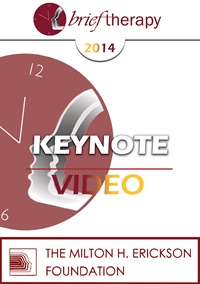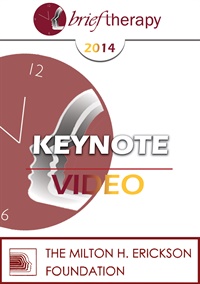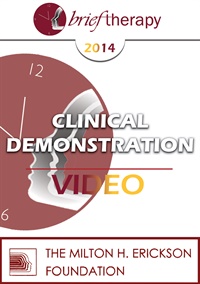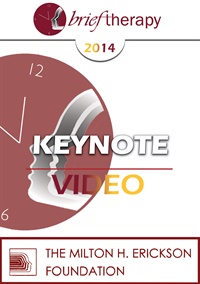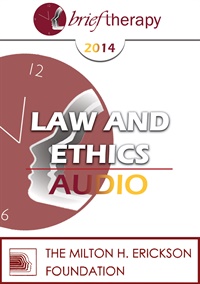
- Average Rating:
- Not yet rated
- Topic Areas:
- Law & Ethics | Therapist Development
- Categories:
- Brief Therapy Conference | Brief Therapy Conference 2014
- Faculty:
- A. Steven Frankel, PhD, JD, ABPP
- Duration:
- 5:39:27
- Format:
- Audio Only
- Original Program Date:
- Dec 15, 2014
- Short Description:
- This 6-hour program addresses the profound changes that are taking place in the health system in the U.S., the implications for mental health care, and, in turn, the implications for mental health care providers. We begin with a discussion of the role of the insurance industry in health care and how that role has expanded over the past 50-60 years, affecting the licensure and practices of mental health professionals.
- Price:
- $15.00 - Base Price
Tags: Ethics Law Therapist Development
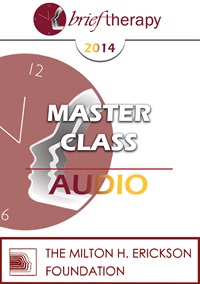
- Average Rating:
- Not yet rated
- Topic Areas:
- Ericksonian Psychotherapy | Master Classes | Brief Therapy | Ericksonian Hypnosis and Therapy Techniques | Experiential Therapy | Psychotherapy | Solution Oriented Approach
- Categories:
- Brief Therapy Conference | Brief Therapy Conference 2014 | Master Class
- Faculty:
- Jeffrey Zeig, PhD | Bill O'Hanlon, MS
- Duration:
- 5:51:06
- Format:
- Audio Only
- Original Program Date:
- Dec 15, 2014
- Short Description:
- Many schools of psychotherapy have been derived from the seminal work of Milton H Erickson M.D., including strategic therapy, interactional therapy, NLP and solution focused therapy. In some approaches hypnosis is central; in other approaches hypnosis is more peripheral. This class features two experts personally trained by Dr. Erickson, each of whom approach psychotherapy from somewhat different perspectives. In his approach, Possibility Therapy, Bill O'Hanlon epitomizes the strengths of a solution focused orientation. In his experiential approach, Jeffrey Zeig shades treatment in the direction of developing dramatic reference experiences.
- Price:
- $15.00 - Base Price
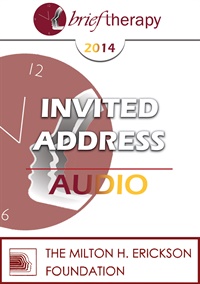
- Average Rating:
- Not yet rated
- Topic Areas:
- Invited Addresses | Brief Therapy | Therapist Development | Training
- Categories:
- Brief Therapy Conference | Brief Therapy Conference 2014
- Faculty:
- Jeffrey Zeig, PhD
- Duration:
- 1:01:08
- Format:
- Audio Only
- Original Program Date:
- Dec 14, 2014
- Short Description:
- Skills and experience, research and theory—each plays a critical role in the development of effective therapy practice. And then there is something else. When we recall the work of such figures as Milton Erickson, Virginia Satir, Carl Rogers and Carl Whitaker, we detect another layer: artistry. Surprisingly, artistry is something that can be taught, or more accurately, expanded or enhanced. Everyone has the capacity.
- Price:
- $15.00 - Base Price
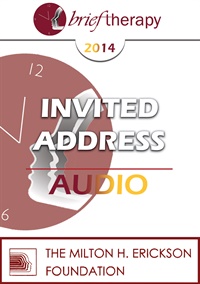
- Average Rating:
- Not yet rated
- Topic Areas:
- Anxiety | Invited Addresses | Brief Therapy | Children and Adolescent Therapy | Homework
- Categories:
- Brief Therapy Conference | Brief Therapy Conference 2014
- Faculty:
- Lynn Lyons, LICSW
- Duration:
- 1:01:55
- Format:
- Audio Only
- Original Program Date:
- Dec 14, 2014
- Short Description:
- When working with anxious kids, your brilliance in the office means nothing if they cannot take what you offer and use it in their world. This presentation will give you eight homework assignments to engage kids from the start, and will spark your strategic creativity as you develop your own homework ideas.
- Price:
- $15.00 - Base Price
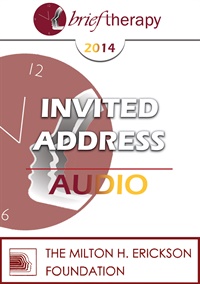
- Average Rating:
- Not yet rated
- Topic Areas:
- Anxiety | Invited Addresses | Brief Therapy | Strategic Therapy
- Categories:
- Brief Therapy Conference | Brief Therapy Conference 2014
- Faculty:
- Reid Wilson, PhD
- Duration:
- 55:39
- Format:
- Audio Only
- Original Program Date:
- Dec 14, 2014
- Short Description:
- The cutting-edge anxiety treatment is now pushing further into the confrontational. You will learn how to help clients purposely to seek out anxiety as their ticket to freedom from crippling fear. Practical methods enable clients to ignore the content of their obsessive worries and to explore the feeling of uncertainty rather than fleeing from it.
- Price:
- $15.00 - Base Price
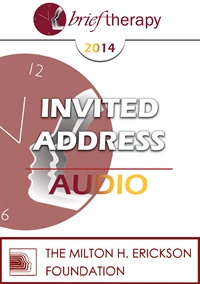
- Average Rating:
- Not yet rated
- Topic Areas:
- Depression | Hypnosis | Invited Addresses | Experiential Therapy | Neuroscience | Brief Therapy
- Categories:
- Brief Therapy Conference | Brief Therapy Conference 2014
- Faculty:
- Michael Yapko, PhD
- Duration:
- 1:08:02
- Format:
- Audio Only
- Original Program Date:
- Dec 14, 2014
- Short Description:
- How a clinician thinks about the nature of depression and answers fundamental questions - such as what causes depression - naturally determine what treatment approach he or she is most likely to take. Regardless of one’s preferred orientation, however, depression experts agree that treatment needs to be multi-dimensional and active. Furthermore, the more we learn about the neuroscience of depression, especially neuroplasticity and neurogenesis, the more important well designed experiential learning processes become in treatment.
- Price:
- $15.00 - Base Price
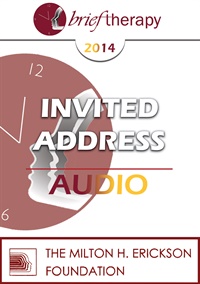
- Average Rating:
- Not yet rated
- Topic Areas:
- Invited Addresses | Brief Therapy | Generative Psychotherapy | Psychotherapy
- Categories:
- Brief Therapy Conference | Brief Therapy Conference 2014
- Faculty:
- Stephen Gilligan, PhD
- Duration:
- 1:02:32
- Format:
- Audio Only
- Original Program Date:
- Dec 14, 2014
- Short Description:
- Generative psychotherapy is an exploration of how individuals can forge positive, therapeutic responses to life challenges. This invited address concentrates on the three core connections that allow clients to do this: (1) Positive intention and goals (What do you most want to create in your life?); (2) Somatic Centering (Where do you feel the deepest resonance in your body?); and (3) Field Resources (What can most deeply support your path of change?).
- Price:
- $15.00 - Base Price
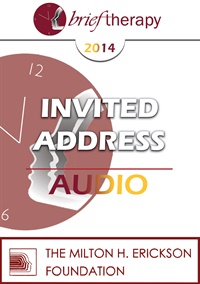
- Average Rating:
- Not yet rated
- Topic Areas:
- Post-Traumatic Stress Disorder (PTSD) | Invited Addresses | Memory | Brief Therapy
- Categories:
- Brief Therapy Conference | Brief Therapy Conference 2014
- Faculty:
- Steve Andreas, MA, NLP
- Duration:
- 59:20
- Format:
- Audio Only
- Original Program Date:
- Dec 14, 2014
- Short Description:
- The phobic core of PTSD is a conditioned response to a terrifying event, easily treated with a process demonstrated in an 8-minute video. Learn the key components that combine to make this method so effective. Other co-occurring problems—grief, rage, anxiety, guilt, shame, drugs, etc.—require different processes for resolution.
- Price:
- $15.00 - Base Price
Tags: Brief Therapy Memory PTSD
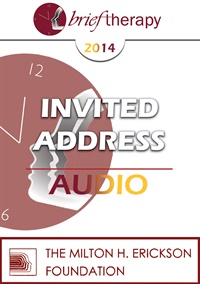
- Average Rating:
- Not yet rated
- Topic Areas:
- Post-Traumatic Stress Disorder (PTSD) | Meditation, Spirituality and Yoga | Invited Addresses | Trauma | Mind-Body
- Categories:
- Brief Therapy Conference | Brief Therapy Conference 2014
- Faculty:
- Bessel van der Kolk, MD
- Duration:
- 1:00:58
- Format:
- Audio Only
- Original Program Date:
- Dec 14, 2014
- Short Description:
- Chronic trauma interferes with self-perception and self-regulation. We will discuss effective approaches.
- Price:
- $15.00 - Base Price
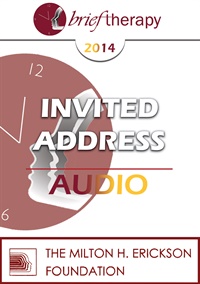
- Average Rating:
- Not yet rated
- Topic Areas:
- Consciousness | Invited Addresses | Neuroscience
- Categories:
- Brief Therapy Conference | Brief Therapy Conference 2014
- Faculty:
- Ernest Rossi, PhD
- Duration:
- 56:51
- Format:
- Audio Only
- Original Program Date:
- Dec 14, 2014
- Short Description:
- Current research in psychosocial genomics is reviewed to underpin a new evolutionary RNA/DNA epigenomic theory of the quantum transformations of consciousness and creative cognition. The alternating classical-to-quantum and quantum-to-classical transitions on all levels from mind to gene are explored for developing an understanding of how the 4-stage creative process operates in an evolving cosmos/consciousness field theory.
- Price:
- $15.00 - Base Price
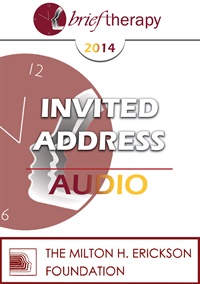
- Average Rating:
- Not yet rated
- Topic Areas:
- Happiness | Invited Addresses | Mindfulness | Brief Therapy | Buddhism
- Categories:
- Brief Therapy Conference | Brief Therapy Conference 2014
- Faculty:
- Ronald Siegel, PsyD
- Duration:
- 1:00:54
- Format:
- Audio Only
- Original Program Date:
- Dec 14, 2014
- Short Description:
- Everyone wants to be happy. While clinicians and researchers traditionally focused on helping troubled people feel less distressed—moving from -5 to 0 on the happiness scale—more recently they’ve branched out to investigate what actually leads to enhanced well-being. Some research findings point in surprising new directions, while others echo advice heard from wise elders and religious teachers across cultures and centuries.
- Price:
- $15.00 - Base Price
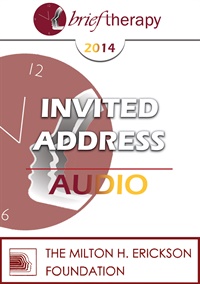
- Average Rating:
- Not yet rated
- Topic Areas:
- Invited Addresses | Brief Therapy | Future Oriented
- Categories:
- Brief Therapy Conference | Brief Therapy Conference 2014
- Faculty:
- Bill O'Hanlon, MS
- Duration:
- 1:04:06
- Format:
- Audio Only
- Original Program Date:
- Dec 14, 2014
- Short Description:
- Most therapy orients to the past. This session will offer an alternative, using "future pull," a method of engaging people in compelling preferred futures and working backwards to the near future to create change in brief therapy.
- Price:
- $15.00 - Base Price
Tags: Future Oriented Brief Therapy

- Average Rating:
- Not yet rated
- Topic Areas:
- Invited Addresses | Relationships | Brief Therapy | Couples Therapy
- Categories:
- Brief Therapy Conference | Brief Therapy Conference 2014
- Faculty:
- Pat Love, EdD
- Duration:
- 56:15
- Format:
- Audio Only
- Original Program Date:
- Dec 14, 2014
- Short Description:
- Relationships have changed since the dawn of the 21st century. Dating, mating, single life, sex-life, monogamy, matrimony, cohabitation, co-operation—all look different than a generation ago. As if it weren't challenging enough to keep up with pathological, technological, ethnic, educational, gender, geographic, socioeconomic, and sexual diversity, we now have the largest generational gap in modern history to contend with which means the relationship expectations and mores that made total sense to the Boomers now baffle many Millennials.
- Price:
- $15.00 - Base Price
- Average Rating:
- Not yet rated
- Topic Areas:
- Keynotes | Trauma | Brief Therapy | Neuroscience
- Categories:
- Brief Therapy Conference | Brief Therapy Conference 2014
- Faculty:
- Bessel van der Kolk, MD
- Course Levels:
- Master Degree or Higher in Health-Related Field
- Duration:
- 1:02:01
- Format:
- Audio and Video
- Original Program Date:
- Dec 14, 2014
- Short Description:
- Neuroimaging and EEG measures of traumatized individuals show significant changes that must be taken into account for treatment to be effective.
- Price:
-
Sale is $29.00
price reduced from Base Price - $59.00
Tags: Brief Therapy Neuroscience Trauma
- Average Rating:
- Not yet rated
- Topic Areas:
- Keynotes | Post-Traumatic Stress Disorder (PTSD) | Brief Therapy | Trauma
- Categories:
- Brief Therapy Conference | Brief Therapy Conference 2014
- Faculty:
- Philip Zimbardo, PhD
- Course Levels:
- Master Degree or Higher in Health-Related Field
- Duration:
- 2:05:42
- Format:
- Audio and Video
- Original Program Date:
- Dec 14, 2014
- Short Description:
- For over 20 years, Dr. Zimbardo has researched the power of relationship with time has on our lives. He has co-authored two published books on the topic, The Time Paradox and The Time Cure, and developed the Zimbardo Time Perspective Inventory (ZTPI) which has been translated into over 24 languages and validated globally. his talk will review the major research on time perspective and introduce his work with Dr. Richard Sword and Rosemary Sword on Time Perspective Therapy, a brief therapy intervention to treat Post-Traumatic Stress Disorder.
- Price:
-
Sale is $29.00
price reduced from Base Price - $59.00
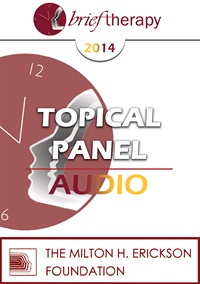
- Average Rating:
- Not yet rated
- Topic Areas:
- Psychotherapy | Topical Panels | Research
- Categories:
- Brief Therapy Conference | Brief Therapy Conference 2014
- Faculty:
- Scott Miller, PhD | Michael Yapko, PhD | Ernest Rossi, PhD
- Duration:
- 1:01:28
- Format:
- Audio Only
- Original Program Date:
- Dec 13, 2014
- Short Description:
- BT14 Topical Panel 01 - Research in Psychotherapy - Ernest Rossi, PhD, Scott Miller, PhD, and Michael Yapko, PhD Educational Objectives: Compare and contrast clinical philosophical perspectives of experts.
- Price:
- $15.00 - Base Price
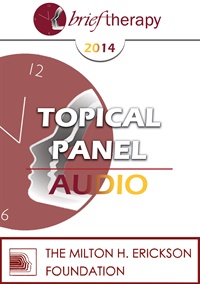
- Average Rating:
- Not yet rated
- Topic Areas:
- Post-Traumatic Stress Disorder (PTSD) | Trauma | Topical Panels | Brief Therapy
- Categories:
- Brief Therapy Conference | Brief Therapy Conference 2014
- Faculty:
- Francine Shapiro, PhD | Bill O'Hanlon, MS | Bessel van der Kolk, MD
- Duration:
- 1:02:30
- Format:
- Audio Only
- Original Program Date:
- Dec 13, 2014
- Short Description:
- BT14 Topical Panel 02 - Post Traumatic Disorders - Francine Shapiro, PhD, Bill O’Hanlon, MS, and Bessel van der Kolk, MD Educational Objectives: Compare and contrast clinical philosophical perspectives of experts.
- Price:
- $15.00 - Base Price
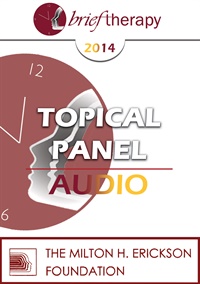
- Average Rating:
- Not yet rated
- Topic Areas:
- Topical Panels | Brief Therapy | Goals of the Therapist
- Categories:
- Brief Therapy Conference | Brief Therapy Conference 2014
- Faculty:
- Jeffrey Zeig, PhD | Pat Love, EdD | Stephen Gilligan, PhD
- Duration:
- 1:01:29
- Format:
- Audio Only
- Original Program Date:
- Dec 13, 2014
- Short Description:
- BT14 Topical Panel 05 - The Goal of Therapy - Pat Love EdD, Stephen Gilligan, PhD, and Jeffrey Zeig. PhD Educational Objectives: Compare and contrast clinical philosophical perspectives of experts.
- Price:
- $15.00 - Base Price
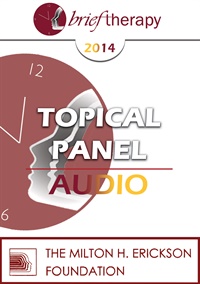
- Average Rating:
- Not yet rated
- Topic Areas:
- Anxiety | Topical Panels | Brief Therapy
- Categories:
- Brief Therapy Conference | Brief Therapy Conference 2014
- Faculty:
- Lynn Lyons, LICSW | Reid Wilson, PhD | Ronald Siegel, PsyD
- Duration:
- 1:01:07
- Format:
- Audio Only
- Original Program Date:
- Dec 13, 2014
- Short Description:
- BT14 Topical Panel 06 - Anxiety Disorders - Reid Wilson, PhD, Lynn Lyons, LICSW, and Ronald Siegel, PsyD Educational Objectives: Compare and contrast clinical philosophical perspectives of experts.
- Price:
- $15.00 - Base Price
Tags: Anxiety Brief Therapy
- Average Rating:
- Not yet rated
- Topic Areas:
- Clinical Demonstrations | Emotionally Focused Therapy (EFT) | Brief Therapy | Couples Therapy
- Categories:
- Brief Therapy Conference | Brief Therapy Conference 2014
- Faculty:
- Sue Johnson, EdD
- Course Levels:
- Master Degree or Higher in Health-Related Field
- Duration:
- 59:06
- Format:
- Audio and Video
- Original Program Date:
- Dec 13, 2014
- Short Description:
- A session at an EFT Externship shows how the EFT therapist helps a distressed couple grasp and distill both their negative interactive cycle that generates distance and the female partners depression and their underlying attachment emotions and needs. At the end of the session, the couple has begun to create a secure base from which to deepen and restore their emotional bond. Dr. Johnson will comment on the process of therapy and interventions as they are viewed.
- Price:
-
Sale is $29.00
price reduced from Base Price - $59.00
- Average Rating:
- Not yet rated
- Topic Areas:
- Keynotes | Couples Therapy | Intimacy | Sex and Sexuality | Attachment | Love
- Categories:
- Brief Therapy Conference | Brief Therapy Conference 2014
- Faculty:
- Esther Perel, MA, LMFT
- Course Levels:
- Master Degree or Higher in Health-Related Field
- Duration:
- 59:13
- Format:
- Audio and Video
- Original Program Date:
- Dec 13, 2014
- Short Description:
- Based on Perel’s Mating in Captivity, this bold take on intimacy and sex grapples with the obstacles and anxieties that arise when our need for secure love conflicts with our pursuit of passion. We will tackle eroticism as a quality of vitality in relationships extending far beyond mere sexuality and show how reconciling these two competing needs is at the heart of sustaining desire over time.
- Price:
-
Sale is $29.00
price reduced from Base Price - $59.00
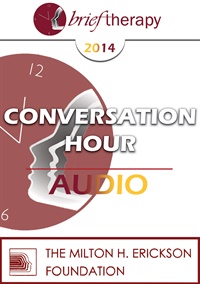
- Average Rating:
- Not yet rated
- Topic Areas:
- Conversation Hours | Brief Therapy
- Categories:
- Brief Therapy Conference | Brief Therapy Conference 2014
- Faculty:
- Bessel van der Kolk, MD
- Duration:
- 1:00:31
- Format:
- Audio Only
- Original Program Date:
- Dec 13, 2014
- Short Description:
- BT14 Conversation Hour 01 - Bessel van der Kolk, MD Educational Objectives: Learn the philosophies of various practitioners and theorists.
- Price:
- $15.00 - Base Price
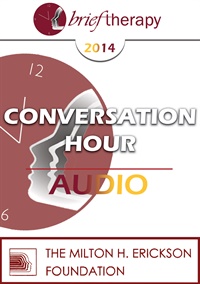
- Average Rating:
- Not yet rated
- Topic Areas:
- Conversation Hours | Brief Therapy
- Categories:
- Brief Therapy Conference | Brief Therapy Conference 2014
- Faculty:
- Scott Miller, PhD
- Duration:
- 57:02
- Format:
- Audio Only
- Original Program Date:
- Dec 13, 2014
- Short Description:
- BT14 Conversation Hour 02 - Scott Miller, PhD Educational Objectives: Learn the philosophies of various practitioners and theorists.
- Price:
- $15.00 - Base Price
Tags: Brief Therapy Scott Miller
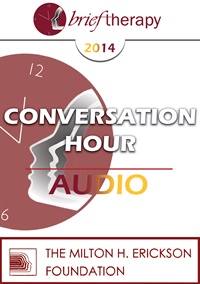
- Average Rating:
- Not yet rated
- Topic Areas:
- Conversation Hours | Brief Therapy
- Categories:
- Brief Therapy Conference | Brief Therapy Conference 2014
- Faculty:
- Lynn Lyons, LICSW
- Duration:
- 1:00:50
- Format:
- Audio Only
- Original Program Date:
- Dec 13, 2014
- Short Description:
- BT14 Conversation Hour 03 - Lynn Lyons, LICSW Educational Objectives: Learn the philosophies of various practitioners and theorists.
- Price:
- $15.00 - Base Price
Tags: Brief Therapy
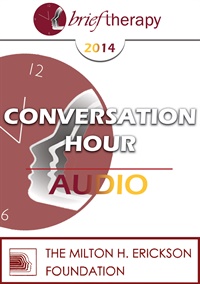
- Average Rating:
- Not yet rated
- Topic Areas:
- Conversation Hours | Brief Therapy
- Categories:
- Brief Therapy Conference | Brief Therapy Conference 2014
- Faculty:
- Francine Shapiro, PhD
- Duration:
- 46:51
- Format:
- Audio Only
- Original Program Date:
- Dec 13, 2014
- Short Description:
- BT14 Conversation Hour 04 - Francine Shapiro, PhD Educational Objectives: Learn the philosophies of various practitioners and theorists.
- Price:
- $15.00 - Base Price
Tags: Brief Therapy


